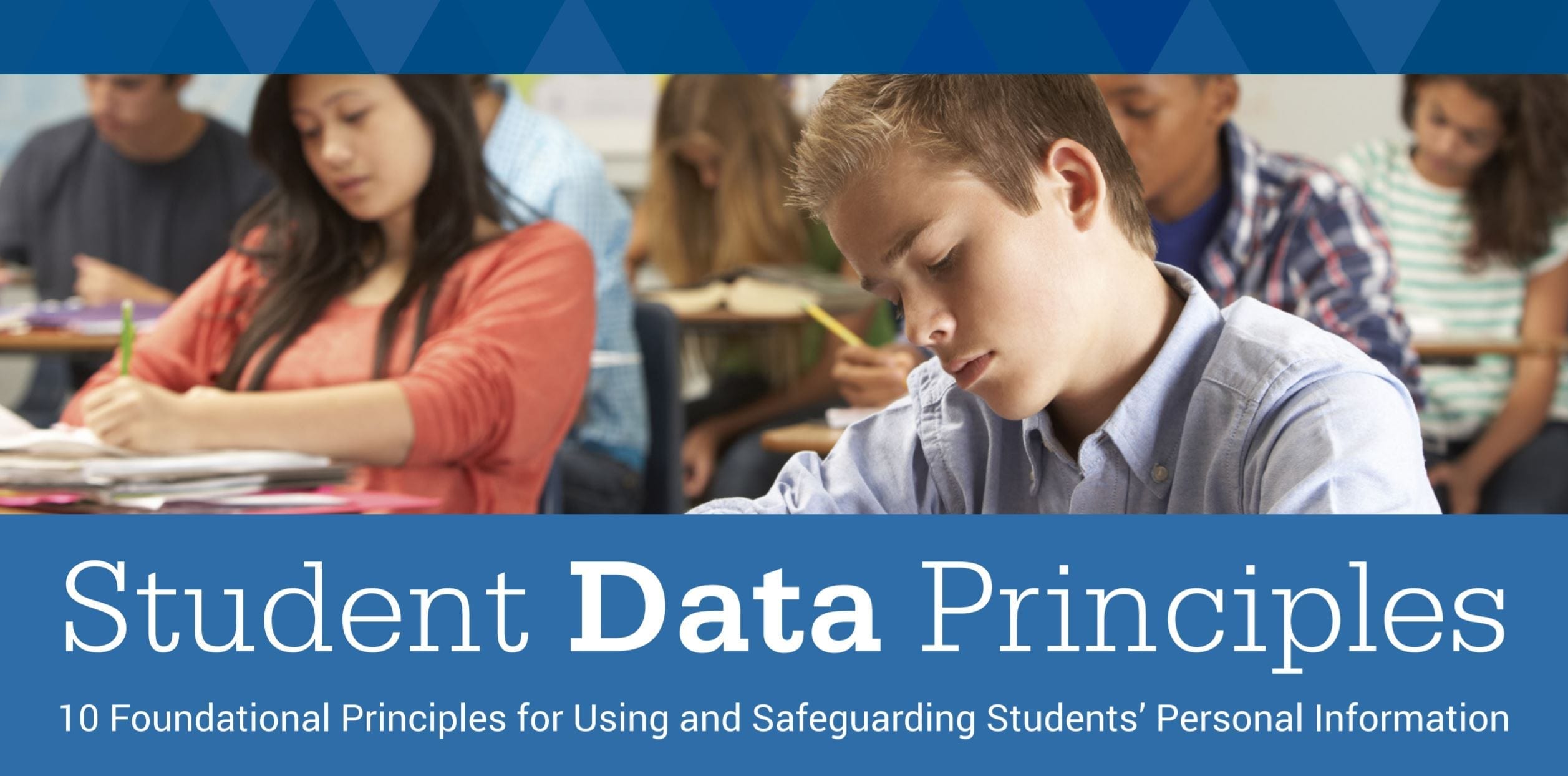On March 10th, the Consortium for School Networking (COSN) and the Data Quality Campaign released 10 privacy principles for student data. So what exactly are these Principles and how are they different from the Student Data Privacy Pledge? The privacy principles are a guide for protecting student data privacy in schools but more importantly, they show that anyone signing on to these principles is serious about student privacy. The guidelines are a great way to support schools and members of the educational community.
Unlike the Student Data Privacy Pledge, these principles are not enforceable by law but I don’t think that lessens the importance of signing on. Anyone signing on to the principles is sending a message that it is ingrained in their culture to integrate these guides into their organization’s thinking. And that is key because it places student data privacy at the forefront. Also worth noting is that these are matching commitments from the “other” side of the table so to speak. These are commitments from the education community to match the Pledge commitments made by vendors which shows the coordination between diverse stakeholder groups, all focused on the same ideas and goals.
Students are the ones that stand to win by the use of technology. They also are the ones that can lose it all if we are not smart when making decisions on student privacy. If we negate students in our thinking, if we do not recognize that our decisions affect kids, we cannot develop effective policies that protect student information in an equitable manner. The Principles are one more piece of the puzzle to help build consensus on best practices.
My favorite Principles? Easy –“Student data should be used to further and support student learning and success” and “student data should be used to inform and not replace the professional judgment of educators.” And this is important because by recognizing that student data matters and that it can and should be used to help students we are moving our conversation into a more comprehensive view of privacy instead of just one of security concerns. It is important we provide educators and educational institutions, with the best training on privacy practices while encouraging them to help students further their learning.
I am encouraged that slowly but surely we are recognizing that this conversation is about students and their future. It is about us helping them get the best education we can provide for them. Because after all, it is about students empowering their education and using the data to make education something they own and not something that just happens to them.
Our conversation shouldn’t stop here. The Principles are a great framework to follow but they certainly are not a cure all. Our conversations on privacy and data need to continue so that we can provide students with the assurance that we will protect their data, we will use it ethically and effectively and will let them take ownership of it so they can use it to their advantage.
If you want to read the principles you can find them here.


